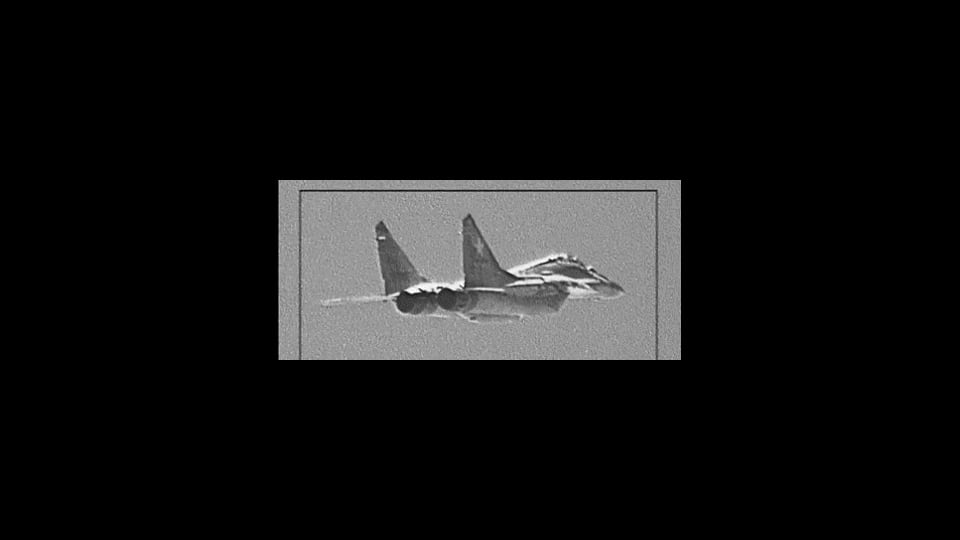Russian aircraft are flying in Libyan airspace backing Russian state-sponsored private military contractors there, according to U.S. Africa Command.
AFRICOM, which announced in May that Russia had deployed military fighter jets to Libya, cited photographic evidence of a Russian aircraft departing Al Jufra Airfield and a MiG-29 operating near Sirte, Libya.
“Russia’s sustained involvement in Libya increases the violence and delays a political solution,” U.S. Marine Corps Brig. Gen. Bradford Gering, AFRICOM’s director of operations, said in a news release. “Russia continues to push for a strategic foothold on NATO’s southern flank and this is at the expense of innocent Libyan lives.”
AFRICOM previously warned that the aircraft would provide close-air support and offensive fires for the Wagner Group — a private military company that U.S. officials have cautioned has Kremlin ties and is led by a former Russian intelligence officer. The Wagner Group and Russia, along with Egypt and the United Arab Emirates, support the Libyan National Army that launched an offensive against the United Nations-backed Government of National Accord.
In particular, AFRICOM cautioned that the Russian aircraft could jeopardize the safety of civilians.
"There is concern these Russian aircraft are being flown by inexperienced, non-state PMC mercenaries who will not adhere to international law; namely, they are not bound by the traditional laws of armed conflict," Gering said. "If this is true and bombing occurs, innocent Libyan lives are at risk."
RELATED

Likewise, AFRICOM spokesman Air Force Col. Chris Karns told Military Times it would present an escalation if Russian pilots were operating the aircraft.
U.S. Air Force Gen. Jeff Harrigian, commander of U.S. Air Forces in Europe and Air Forces in Africa, told reporters Thursday that the aircraft are being flown to develop “pilot proficiency” so far.
“Primarily what we’ve seen as far as activity is in essence what I would quantify as sorties where they are working on their basic flying skills,” Harrigian said.
“I would tell you that largely what they’ve been doing is working on what I would call pilot proficiency,” Harrigian said.
Harrigian has previously said he is worried about Russia deploying permanent long-range anti-access area denial (A2AD) capabilities and establishing a platform on Europe’s southern flank that would allow it to increase its influence in Africa and Russia.
“As far as any buildup of integrated air defense from a surface to air missile capability, we haven’t seen any of that thus far,” Harrigian said Thursday.
AFRICOM first announced last month that at least 14 MiG-29s and several Su-24s had deployed to Al Jufra Airfield, after stopping in Syria and were repainted to hide the Russian aircraft’s origins.
Although Russian leaders have denied AFRICOM’s claims about the aircraft being deployed, the U.S. military has maintained that the aircraft were not in Libya’s inventory previously.
“So we are confident that these aircraft were not there, and were not older aircraft that had been maintained,” Brig. Gen. Gregory Hadfield, AFRICOM’s deputy director for intelligence, told reporters in May. “If Russia secures a permanent position in Libya and, worse, deploys long range missile systems, it will be a game changer for Europe, NATO and many Western nations.”
After Libyan dictator Moammar Gadhafi’s ouster, the U.S. kept a small number of troops in Libya starting in 2011 to back local forces opposing Islamic State and al-Qaida-linked militants there. But U.S. troops were pulled from Libya in April 2019 due to heightened unrest, after Field Marshal Khalifa Hifter’s Libyan National Army launched an offensive against the GNA in Tripoli.
AFRICOM told Military Times in May that U.S. troops have not returned to Libya since then.
Hifter, a former CIA asset, was exiled during Gadhafi’s leadership and obtained U.S. citizenship in the 1990s while living in Virginia before returning to Libya in 2011.
Turkish-backed forces in Libya have made significant progress in the fight against the LNA in recent weeks, and the GNA announced earlier this month that it had completely retaken Tripoli from the LNA. Harrigian said that the U.S. is not providing any assistance to the GNA.
There are approximately 6,000 Department of Defense personnel in Africa, and roughly 2,000 Wagner Group personnel in Libya, according to AFRICOM. The command said government-backed, Russian private military companies are active in sixteen African nations.
Defense News reporter Valerie Insinna contributed to this report.





